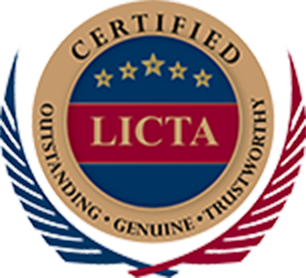Real Property Gains Tax Malaysia (RPGT) is a tax imposed on gains arising from the disposal of real property or shares in a real property company (RPC). Although Malaysia generally does not impose tax on capital gains, RPGT serves as an exception to this rule under the Real Property Gains Tax Act 1976.
What is Real Property Gains Tax (RPGT)?
Real Property Gains Tax (RPGT) is a form of capital gains tax charged on profits derived from the disposal of real property located in Malaysia or shares in a Real Property Company (RPC).
Real Property includes:
- Land situated in Malaysia
- Any interest, option, or right over such land
- The surface of the earth and substances forming it
- Buildings and fixtures permanently attached to the land
- Standing timber, crops, and vegetation growing on the land
- Land covered by water
Real Property Company (RPC)
A Real Property Company (RPC) is a controlled company that owns real property or shares in another RPC, where the defined value of those properties represents not less than 75% of the company’s total tangible assets.
Who is Chargeable to RPGT?
Every person, whether a resident or non-resident in Malaysia, is subject to RPGT on chargeable gains derived from the disposal of chargeable assets.
The applicable RPGT rates depend on the type of disposer and the holding period of the property, as outlined below.
RPGT Rates in Malaysia (Effective 2025)
| Date of Disposal | Company RPGT % | Malaysian Citizen or PR RPGT % | Non-Citizen or Non-PR RPGT % |
| Disposal within 2 years after acquisition | 30% | 30% | 30% |
| Disposal in the 3rd year after acquisition | 30% | 30% | 30% |
| Disposal in the 4th year after acquisition | 20% | 20% | 30% |
| Disposal in the 5th year after acquisition | 15% | 15% | 30% |
| Disposal in the 6th year or thereafter | 10% | 0% | 10% |
Chargeable Gain vs Allowable Loss
1. Chargeable Gain
When a chargeable asset is sold at a profit, the gain is known as a chargeable gain, and it is subject to RPGT.
2. Allowable Loss
When a chargeable asset is sold at a loss, the amount is referred to as an allowable loss.
- The allowable loss may be deducted against total chargeable gains in the year of disposal.
- Any unutilized loss may be carried forward to offset against future chargeable gains.
Even when no RPGT is payable, both the disposer and acquirer are required to file a RPGT return within 60 days of disposal to ensure that any allowable loss is properly recorded and can be carried forward.
Filing Requirements and Compliance
Under the Real Property Gains Tax Act 1976, a disposer and acquirer must submit CKHT forms to the Inland Revenue Board of Malaysia (LHDN) within 60 days of the disposal date.
Failure to comply may result in penalties.
The first year of assessment started on 7 November 1975, with subsequent years following the calendar year basis.
Key Takeaways
- RPGT applies to disposals of real property and shares in a Real Property Company.
- Rates vary depending on ownership period and taxpayer category.
- Allowable losses can be carried forward to future gains.
- Returns must be filed within 60 days of disposal, even if no tax is due.
ANC Group – Your Personal Tax Advisor
Tax consulting is the core service of ANC Group. Our tax professionals provide clients with comprehensive tax support and guidance. We offer tax consulting and compliance services for expatriates, entrepreneurs, and listed and non-listed companies.
Our tax consulting services include business tax, transaction tax, personal tax, and corporate income tax. We don’t just guide you in interpreting and applying complicated taxation rules, but to explore new opportunities and business trends.
ANC Group keep you abreast with Malaysia tax updates and any changes in the local regulations.
We work closely with industry specialists, authorities, and associated professionals within ANC Group to provide the best-in-class integrated tax planning solutions. ANC specialists coordinate the accounting and taxation services to bring your business to success.
If you need professional tax advisory services regarding the Malaysia Income Tax Act 1967, our team is ready to assist you. Contact us here to discuss how we can support your business.









